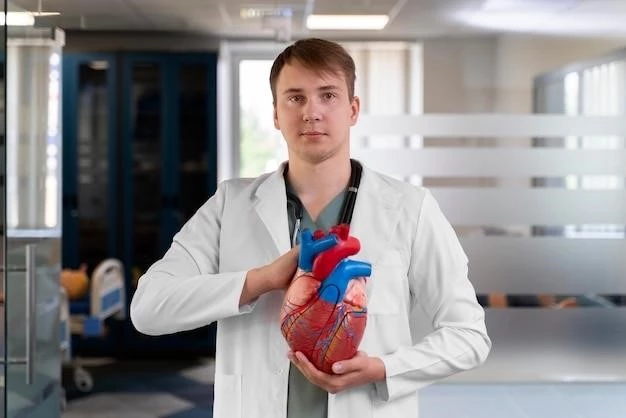Symptoms of Cardioauditory Syndrome
Common symptoms of Cardioauditory Syndrome include dizziness‚ fainting‚ hearing loss‚ and heart palpitations.
Common Symptoms
Patients with Cardioauditory Syndrome may experience a combination of symptoms such as fatigue‚ shortness of breath‚ chest pain‚ and irregular heartbeat. These symptoms can vary in severity and frequency‚ impacting the quality of life of those affected by the condition. It is essential for individuals experiencing any of these symptoms to seek medical attention promptly for a proper diagnosis and treatment plan.
Causes of Cardioauditory Syndrome
The underlying causes of Cardioauditory Syndrome are often related to genetic mutations affecting the heart and inner ear function.
Underlying Causes
Cardioauditory Syndrome can be caused by various factors‚ including genetic mutations‚ structural abnormalities in the heart or inner ear‚ and certain medical conditions like Meniere’s disease. Understanding these underlying causes is crucial for proper management and treatment of the condition. Research is ongoing to further explore these causes and develop effective treatment strategies.
Treatment Options for Cardioauditory Syndrome
Medical treatments for Cardioauditory Syndrome may include medications‚ hearing aids‚ pacemakers‚ and surgical interventions to manage symptoms and improve quality of life.
Medical Treatments
Medical treatments for Cardioauditory Syndrome aim to address specific symptoms and underlying issues. This may involve a combination of medications to manage heart rhythm abnormalities‚ hearing loss‚ and dizziness. In some cases‚ surgical interventions such as implanting a pacemaker or cochlear implant may be necessary. Regular monitoring and follow-up with healthcare professionals are essential to adjust treatment plans as needed and ensure optimal management of the condition.
Diagnosis of Cardioauditory Syndrome
Diagnosing Cardioauditory Syndrome may involve a combination of medical history review‚ physical examinations‚ hearing tests‚ heart monitoring‚ and imaging studies.
Diagnostic Procedures
Diagnostic procedures for Cardioauditory Syndrome may include electrocardiogram (ECG)‚ echocardiogram‚ audiometry tests‚ vestibular assessment‚ genetic testing‚ and imaging studies like MRI or CT scans. These tests help healthcare providers evaluate heart and ear function‚ identify any abnormalities‚ and establish a definitive diagnosis. Timely and accurate diagnostic procedures are crucial in developing an appropriate treatment plan for individuals affected by Cardioauditory Syndrome.

Lifestyle Changes for Cardioauditory Syndrome
Healthy habits such as maintaining a balanced diet‚ regular exercise‚ reducing stress‚ avoiding tobacco‚ and limiting caffeine intake can help manage Cardioauditory Syndrome.
Healthy Habits
Adopting healthy habits is vital for individuals with Cardioauditory Syndrome. This includes engaging in regular physical activity‚ consuming a heart-healthy diet rich in fruits‚ vegetables‚ and whole grains‚ maintaining a healthy weight‚ managing stress through relaxation techniques or meditation‚ getting an adequate amount of sleep‚ and avoiding excessive alcohol consumption. These lifestyle changes not only support overall well-being but also play a crucial role in managing the symptoms and complications of Cardioauditory Syndrome.
